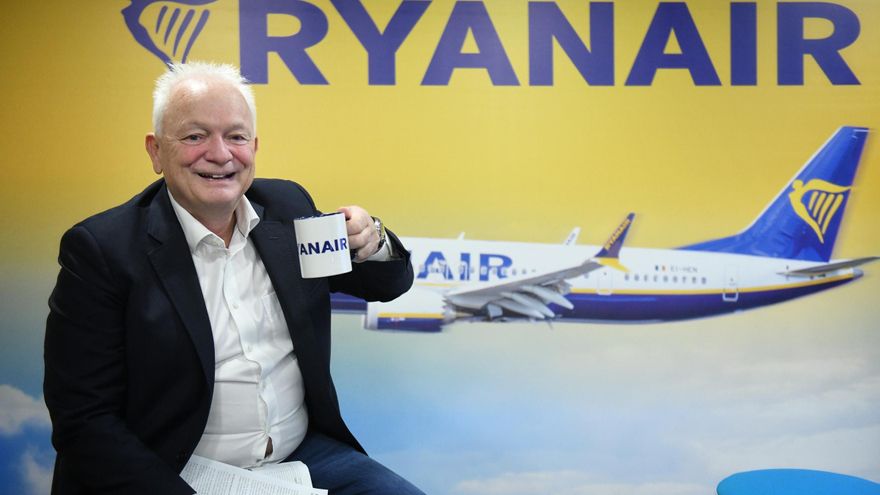Ryanair announces major flight cuts to Spanish regional airports
In a significant move impacting travel to and within Spain, Irish airline Ryanair is set to announce the removal of nearly a million seats from Spanish regional airports next summer. This decision comes as a direct response to a 6.5% airport fee increase planned by Spanish airport operator Aena for 2026, which the airline has condemned as “unjustified and damaging.”
A clash over competitiveness and fees
Ryanair’s CEO, Eddie Wilson, explained the drastic measure stems from the Spanish government’s perceived “indifference” to the deteriorating and underutilized state of regional infrastructure. He stated the airline will now “invest where we can get a return,” using the announcement to pressure Spain to reform the management of Aena—51% state-owned—and improve the competitiveness of regional airports. Wilson argues these airports are already “almost 70% empty due to a failed fee structure,” making the price hike to €11.03 per passenger, the highest in a decade, particularly hard to justify amidst Aena’s record profits and passenger numbers.
The impact on regional connectivity and tourism
The exact details of which airports will be affected and the precise number of seats cut will be revealed at a press conference in Madrid next Wednesday. Wilson had previously warned the reductions would be “quite severe” and “very drastic.” The core of the problem, according to Ryanair, is the lack of competitiveness, with many regional airports operating at a 70% underutilization rate. “If the airports are empty, that means the price is wrong. It’s as simple as that,” Wilson asserts.
The consequences of this policy will be felt most acutely by citizens in regional areas, often referred to as ‘Empty Spain,’ who stand to lose frequent, low-cost connectivity. Wilson warns this will “translate to fewer passengers, fewer jobs, fewer connections, and fewer opportunities for tourism.”
Capacity shifting to more competitive markets
Frustrated by the lack of response from the Spanish Transport Minister to its concerns, Ryanair confirms it will relocate aircraft and capacity to more competitive European markets. Countries like Italy, Sweden, Croatia, Hungary, and Morocco, where governments actively incentivize growth, will benefit from the capacity pulled from Spain. “The capacity withdrawn from Spanish regional airports will not stay in Spain but will be allocated to other more competitive countries or regions,” Wilson confirmed, noting that “many European countries are interested in our investments.”
A pattern of reduction and a call for change
This new round of cuts builds on an existing trend. This past summer, Ryanair already reduced its capacity by 18% across seven Spanish airports, losing 800,000 seats and 12 routes due to “excessive fees and the ineffectiveness of Aena’s incentive plans.” The airline ceased operations entirely in Jerez and Valladolid, removed a based aircraft from Santiago (a $100 million investment), and reduced traffic in Vigo (-61%), Santiago (-28%), Zaragoza (-20%), Asturias (-11%), and Santander (-5%).
Despite this, Ryanair, which remains the passenger leader in Spain, will continue to grow in major airports like Madrid, Barcelona, Málaga, and those in the Balearic and Canary Islands. Wilson sees it as a dual problem: major airports are reaching capacity limits while regional facilities lie underused. He warns that without urgent action, Spain risks losing more capacity and investment to competitors.
Proposing solutions and criticizing monopolies
As an alternative, Ryanair proposes that the management of less profitable airports could be transferred to regional autonomous communities. “We don’t care who manages the airports, as long as they are competitive,” Wilson justified, adding that “it’s the airlines that bring passengers, not the airports.” He likened the situation to a hotel, stating, “If they were a hotel, with that occupancy they would be closed,” and suggested Aena should sell them so others can make them profitable.
Wilson also criticized Aena’s ongoing investments outlined in its Airport Regulation Document 2027-31 (Dora III), pointing out that expansion projects in Madrid, Barcelona, Málaga, and the islands are “paid for with airline money through fees that affect us for 25 years, not with Aena’s money.” He called for this expansion to be “efficient.”
The ball is in the government’s court
Ryanair concludes that the responsibility now lies with the Spanish government to decide whether it will allow the “terminal decline” of its regional airport infrastructure or act to reverse the situation. The airline has positioned this massive capacity cut as a necessary response to what it sees as a monopolistic and uncompetitive system, putting the future of regional travel and tourism in Spain firmly on the line.

